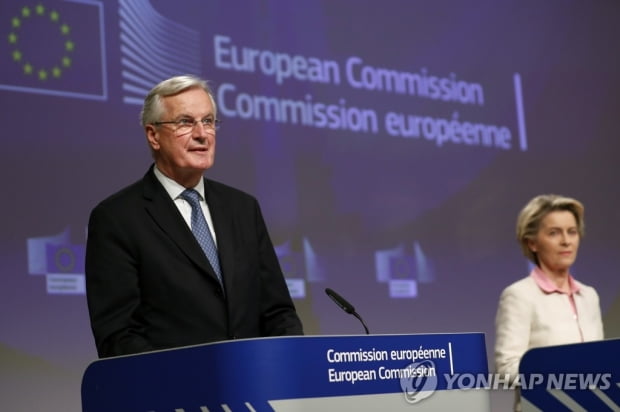
As the UK and the European Union (EU) conclude negotiations on future relations on the 24th (local time), attention is focused on the impact on Korean export companies.
Although the impact on companies that export directly to the UK or EU is small, it is expected that preparations should be made in advance as changes in customs clearance and certification regulations will occur from next year.
The Korea International Trade Association analyzed that the results of the negotiations on the 25th will have a negligible effect on Korean companies that export directly to the UK or the EU.
As the Korea-English Free Trade Agreement (FTA) was officially signed on August 22, last year, the preferential trade relationship between the Korea-English FTA continues.
In addition, in accordance with the Korea-English FTA, if exports via the EU also meet the requirements, it is recognized as’direct transportation’ for a temporary period of 3 years, and preferential tariff benefits are granted.
Korean companies that produce in the EU and export to the UK will be able to continue to be subject to tariff-free when clearing the EU and the UK following the conclusion of negotiations.

However, there may be cases in which non-tariff preferential treatment may not be received depending on whether the rules of origin are met under the agreement.
An official from the Korea Trade Association said, “Some items must undergo an essential production process within the EU.” It may not be possible,” he explained.
He advised that in order to meet the rules of origin of the EU trade agreement with the UK, it is necessary to consider converting parts procured from Korea or outside the EU to EU domestic production if necessary.
When the transition period ends by the end of this year, the UK-EU customs clearance procedure will revive.
In the UK, EU imports, which account for 49.1% of total imports, will be converted to offshore customs clearance, so from January 1 next year, customs clearance is expected to be inevitable for the time being.
The trade association said, “When the implementation period is over, the EU and the UK are subject to separate laws and regulations. In particular, in the case of certification, the effectiveness may be a problem depending on the country where the certification body is located.”
At the end of the implementation period, the EU does not recognize the validity of the’CE Certification’ that has been evaluated by a British accredited body.
The UK has also announced its own UKCA certification, which replaces the CE certification, and plans to recognize the effect of the’CE certification’ that has been temporarily evaluated by an EU accredited body by the end of 2021.
An official from the Korea Trade Association said, “Our company should also be prepared for changes in customs clearance and certification regulations.” And we plan to expand the consultation counter.”

/yunhap news
